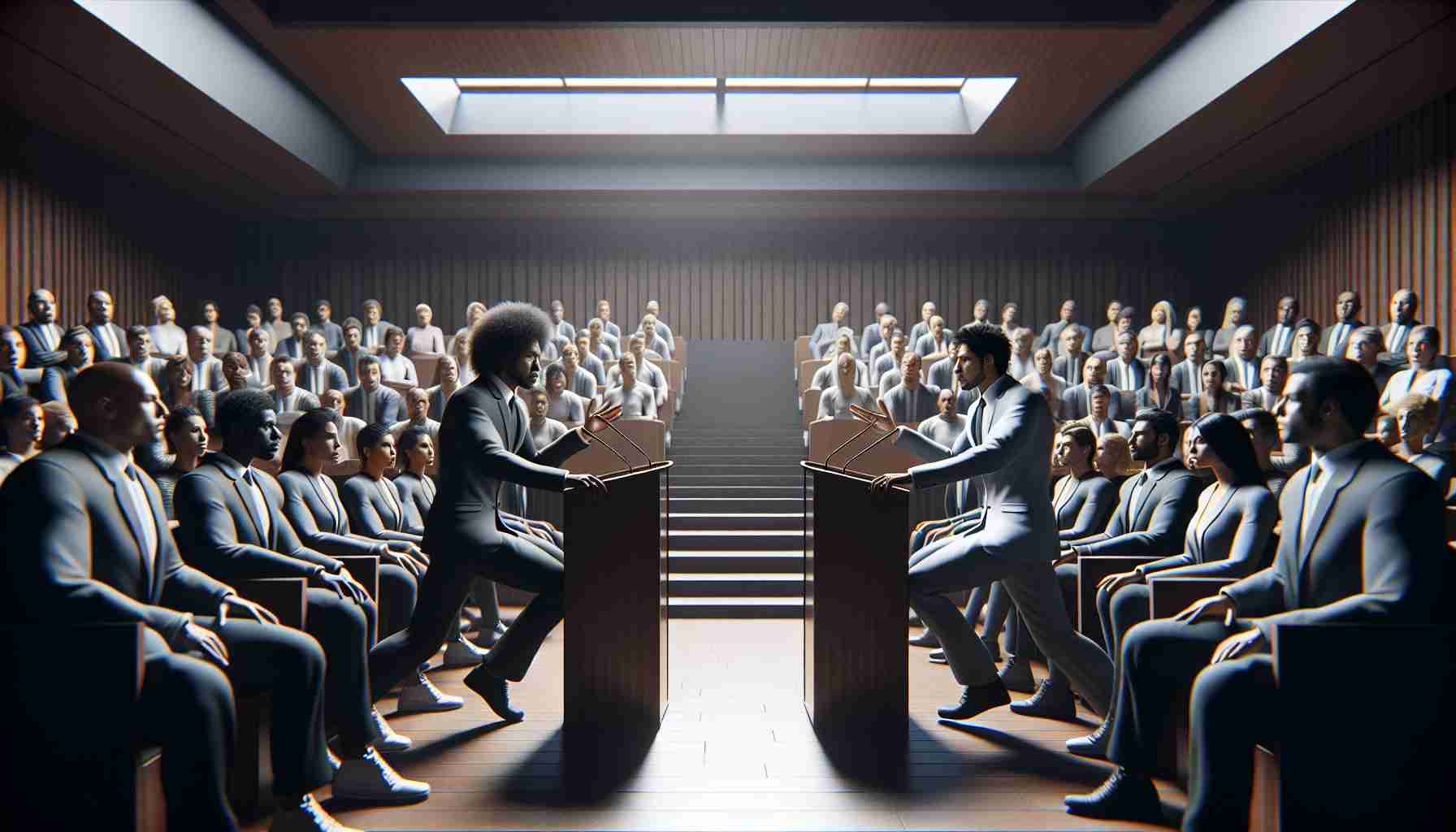In a recent debate between former San José Mayor Sam Liccardo and Assemblymember Evan Low, significant tensions arose surrounding police reform and immigration policies. Liccardo criticized Low’s past actions, particularly targeting Low’s block of a statewide police reform bill aimed at making misconduct records accessible to the public. He emphasized that public awareness of police misconduct is essential, citing serious crimes such as excessive force and theft.
The candidates also shared views on immigration, expressing a common desire for reform while recognizing the need for enhanced border security. However, they diverged sharply when discussing the Biden Administration’s approach, with Low supporting the current strategy and Liccardo arguing for a more urgent response to border issues. Low highlighted the struggles of undocumented workers in regions like Half Moon Bay and advocated for comprehensive immigration reform.
The debate extended to housing and homelessness, with Liccardo accusing Low of insufficient action in the state legislature and Low countering with critiques of Liccardo’s mayoral tenure, which he claimed failed to meet housing goals significantly. While their rivalry was evident, both candidates found agreement on the need for stronger privacy protections in technology and support for workers impacted by automation. They concluded that establishing robust industry standards is crucial for safeguarding both consumers and employees in the evolving digital landscape.
Essential Tips and Life Hacks Inspired by Political Debates
In times of political discourse, such as the recent debate between former San José Mayor Sam Liccardo and Assemblymember Evan Low, complexities in issues like police reform, immigration policies, and housing can be overwhelming. While the debates are critical for understanding our leaders’ positions, they also teach us valuable lessons about effective communication, critical thinking, and civic engagement. Below, you’ll find some tips and life hacks that can empower you in the political landscape, along with interesting facts related to these topics.
1. Stay Informed and Engaged
– Take the time to research candidates’ backgrounds and their positions on critical issues. Websites such as Ballotpedia provide nonpartisan information about elections and candidates.
– Attend town hall meetings or community forums, where you can ask questions and voice your opinions directly to representatives.
2. Master the Art of Debate
– Whether in political settings or personal discussions, practicing constructive debate techniques can help clarify your thoughts. Focus on staying calm, presenting evidence to support your claims, and actively listening to opposing views.
– One tactic is to “chunk” your arguments: break them down into clear, manageable points that are easy to understand, much like the candidates did regarding immigration reforms.
3. Understand the Importance of Local Issues
– National policies often overshadow local ones, but your community’s issues can be just as important. Engage with local news sources and talk to residents to find out what matters in your neighborhood.
– For example, housing and homelessness were significant points of contention in the recent debate, reflecting local needs for policy change.
4. Advocate for Transparency
– Just as Liccardo emphasized public awareness of police misconduct, advocate for transparency in policies that affect your community. Support or participate in initiatives that promote open data and accountability in law enforcement and government.
– Familiarize yourself with access-to-information laws that allow citizens to obtain public records.
5. Foster An Environment of Constructive Critique
– When discussing differing opinions, practice offering constructive critiques rather than outright opposition. This approach helps build consensus and encourages dialogue, similar to the nuanced conversation around immigration policies in the debate.
Interesting Facts:
– Did you know that California has one of the largest immigrant populations in the U.S., with significant contributions to the state’s economy? Engaging with this fact can foster understanding of immigrant policies and their impacts on communities.
– Public access to police misconduct records is a critical part of community policing and reform, a significant point brought up by Liccardo during the debate, emphasizing the need for ongoing public discourse on these issues.
6. Embrace Technology for Civic Engagement
– Leverage social media and online platforms to engage with political conversations. Following local leaders or activists can provide insights and updates on community issues.
– Explore applications designed to encourage civic participation, like voting resources or town hall notifications.
7. Become an Advocate for Privacy and Workers’ Rights
– With rapid technological advancements, understanding privacy protections is vital. Stay updated on digital rights and advocate for stronger regulations that protect consumers and workers.
– Join local advocacy groups focused on technology standards and workers’ rights to make a more significant impact in your community.
In conclusion, while political debates can often be contentious and divisive, they also present opportunities for personal growth and community engagement. By adopting these tips and remaining active in the political process, you can play a vital role in shaping the future of your community.
For more insights into political engagement and civic responsibility, visit Vote.org.
